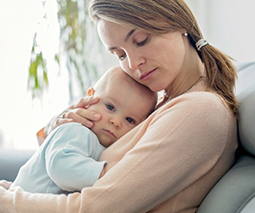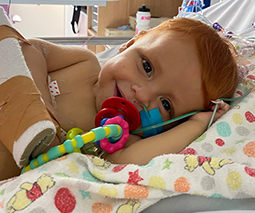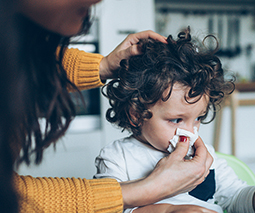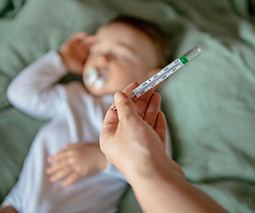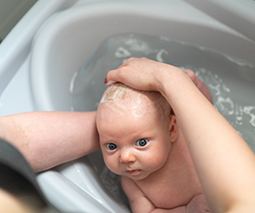Should you take your child to hospital if they have noisy breathing?

It’s the time of year when the days are short and much chillier than usual. It’s also the time of year when kids come down with all kinds of splutters and runny noses and the like.
But when those splutters turn into breathing that sounds ‘not quite right’ how do you know whether it’s something serious, or the usual daycare-inspired wheeze that will disappear in a few days?
Listen to Sarah Hunstead on Feed Play Love:
Sarah Hunstead from CPR Kids has some advice for when a cosy cuddle and some TLC is the best treatment … and when treatment needs to be escalated and an ambulance called.
Sarah says the most common reason for breathing problems is some sort of virus or infection. Chronic respiratory conditions such as asthma are also sadly commonplace.
What should parents look out for?
“It’s about looking at your child,” Sarah says. “It doesn’t matter what the causes. You know your job as a parent or carer is not to diagnose what they’ve got. You don’t need to worry about that. All you need to do is to be out to recognise the symptoms and know when to call for help.”
Sarah explains that there are lots of physical signs that parents can watch for. These symptoms indicate that something’s going on and can help you determine if your child needs medical attention.
(And if you’re worried and feel like your child is going downhill? Sarah says absolutely trust your instincts and head to the GP or call an ambulance, depending on your individual circumstances and how unwell your child seems.)
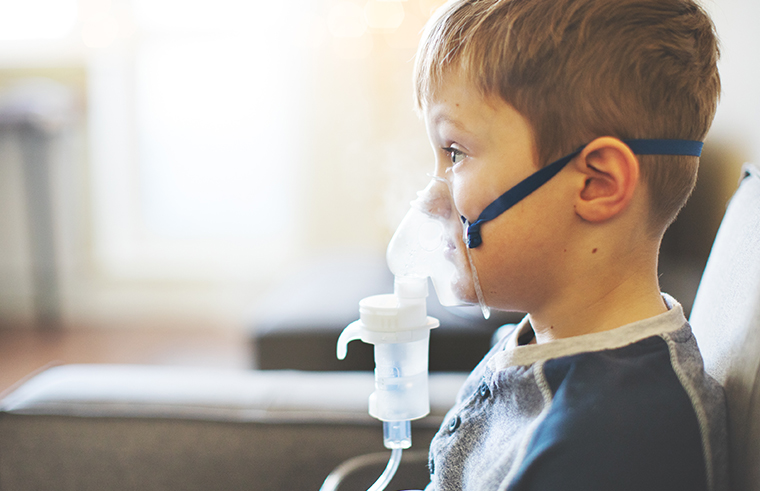
Signs of breathing difficulties in babies and children
We asked Sarah how parents can spot breathing difficulties in their kids and she had lots of advice.
- “If your child’s unwell, and you notice that their breathing starts to become faster than normal”
- “You may notice that on their neck, you know that little notch just below the Adam’s apple there, starts to suck inwards.”
- “You might notice that around their ribs and their tummy – and particularly in younger kids and babies – that it’s almost like their tummy is starting to seesaw in and out and they suck in under their ribs.”
- “In a baby, you might notice that their nostrils are starting to flare in or out.”
- “Or even in an older child where they’re not able to speak in complete sentences … they just start to talk in phrases or [single] words. You can hear that they’re struggling to get those words out.”
“All of these things can be really concerning,” Sarah says, and are signs that your child needs medical assistance.
Should you call the GP … or an ambulance?
Sarah says it’s vital to act quickly if your child’s breathing is unusual or laboured.
“We don’t muck around with breathing problems,” she explained firmly. “If they are having that difficulty breathing, we are calling an ambulance. Really important. If your child is turning blue. Call an ambulance.”
Think it might be faster to head to the emergency department yourself? Sarah says parents should resist this urge and call in the professionals ASAP.
“Don’t be tempted to chuck them in the back of the car. You need help to come to you.”
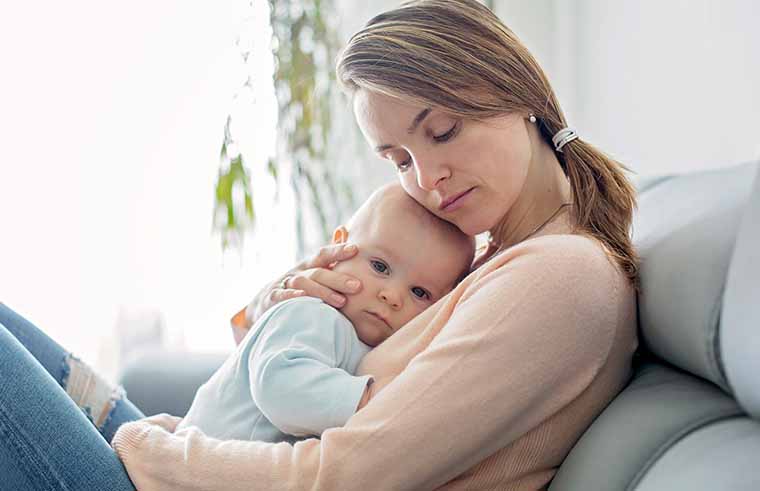
Be extra careful with tiny babies
When dealing with small babies, extra vigilance is vital – and seeking medical attention early can be key.
“When it comes to the little babies, they’re a different kettle of fish. They can get sick really, really quickly.”
But how do you know your baby’s very unwell if they can’t really tell you?
“One of the first signs you may notice when it comes to breathing problems in a baby is they can’t feed properly,” Sarah said.
“So if they’re breastfed or bottlefed, they might be pulling off the bottle of milk or the breast and they just can’t seem to get that in. And that’s a worrying sign.”
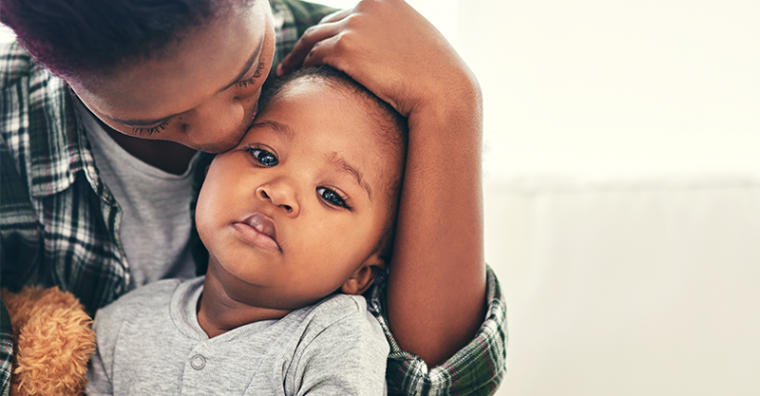
What about asthma?
Sometimes breathing issues are caused by asthma, but a child may not yet have a diagnosis.
“Asthma itself isn’t usually diagnosed until a child has had multiple wheezy episodes that respond to Ventolin,” Sarah confirms.
“Absolutely you could have a child who has never really had an episode like that before and then all of a sudden does get this wheezy episode.”
If your child is having issues breathing and does have asthma, it’s important to keep a close eye on them, stick to their asthma action plan and make sure anyone that cares for your child is aware of their condition – and knows what to do if they are struggling or have an asthma attack.
“It’s about knowing their signs and symptoms and having that asthma action plan that actually lists that particular child’s signs and symptoms, so that not only you know [but] their teachers know and the other people who are caring know.”
That said, it’s important to realise things can escalate very quickly with asthma.
“Asthma attacks can get very severe. Then you need to call an ambulance straight away.”
Get to the bottom of breathing issues
Any breathing issues need to be checked out, even if they don’t seem serious.
“If your child does have that noisy breathing, go and get them checked out by a GP because they need to get a stethoscope on their chest and make sure everything’s going all right in there,” Sarah says.
Find more great stories and expert advice in the Feed Play Love podcast. Available in Apple Podcasts, Google Podcasts, Spotify or wherever you listen.
